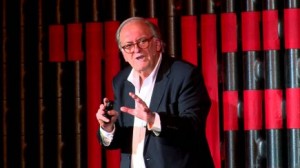There was a time, not long ago, when people got fed up with ‘change programmes’ that faded at the speed of light, strategic decisions that were slow in being implemented or never followed up, or a series of often competing ephemeral corporate initiatives, all started with great fanfare and soon disappearing into Bermuda triangles.
(Not long ago? Past tense?).
The solution was to stick the word ‘sustainable’ in front of everything: sustainable change, sustainable culture, sustainable strategies.
That wasn’t a hard job, because ‘sustainable’ and ‘sustainability’ had reached adulthood and they were all over the place already: sustainable world, sustainable energy, sustainable public policies, green and sustainable, corporate social responsibility for a sustainable anything, sustainable growth and environmentally sustainable. Hard not to be sustainable.
But in the organization, we need to take a hard look at the sustainability of the word sustainable and do so with great care and critical thinking.
If sustainable strategy means, all fixed, long term, clear destination, set of implementable actions with little ongoing questioning, then, sustainability is not a good competitive advantage.
If sustainable change means we know exactly what is going to happen and we will not have deviations from the plan, then, sustainability is not a competitive advantage either.
Same applies to sustainable culture.
The risk is that sustainable becomes the equivalent to fixed, unquestioned and predictable.
But the term has, of course, intrinsic value, once we have catered for those possible mis-applications.
The real competitive advantage lies in what I call Adaptive Sustainability, which I see as a platform of processes, systems and behaviours that ensure the sustainable capability (strategies, change, culture) but can change gears and directions with zero or little hassle, yet keeping the unchangeable strong.
Here, in this form of Organizational Operating System, change-ability has taken over ‘change’ and ‘sustainable change’, for example.
One of my acid tests? Acquisitions that run smoothly, embraced by all people and with no cultural wars, which is not the same as cultural blindness or insensitivity.
Let’s sustain this discussion and the thinking behind. Shall we?
________________________________________________________________________________________________
Dr Leandro Herrero is the CEO and Chief Organization Architect of The Chalfont Project, an international firm of organizational architects. He is the pioneer of Viral ChangeTM, a people Mobilizing Platform, a methodology that delivers large scale behavioural and cultural change in organizations, which creates lasting capacity for changeability.
Dr Herrero is also an Executive Fellow at the Centre for the Future of Organization, Drucker School of Management. An international speaker, Dr Herrero is available for virtual speaking engagements and can be reached at: The Chalfont Project.




Would you like to comment?